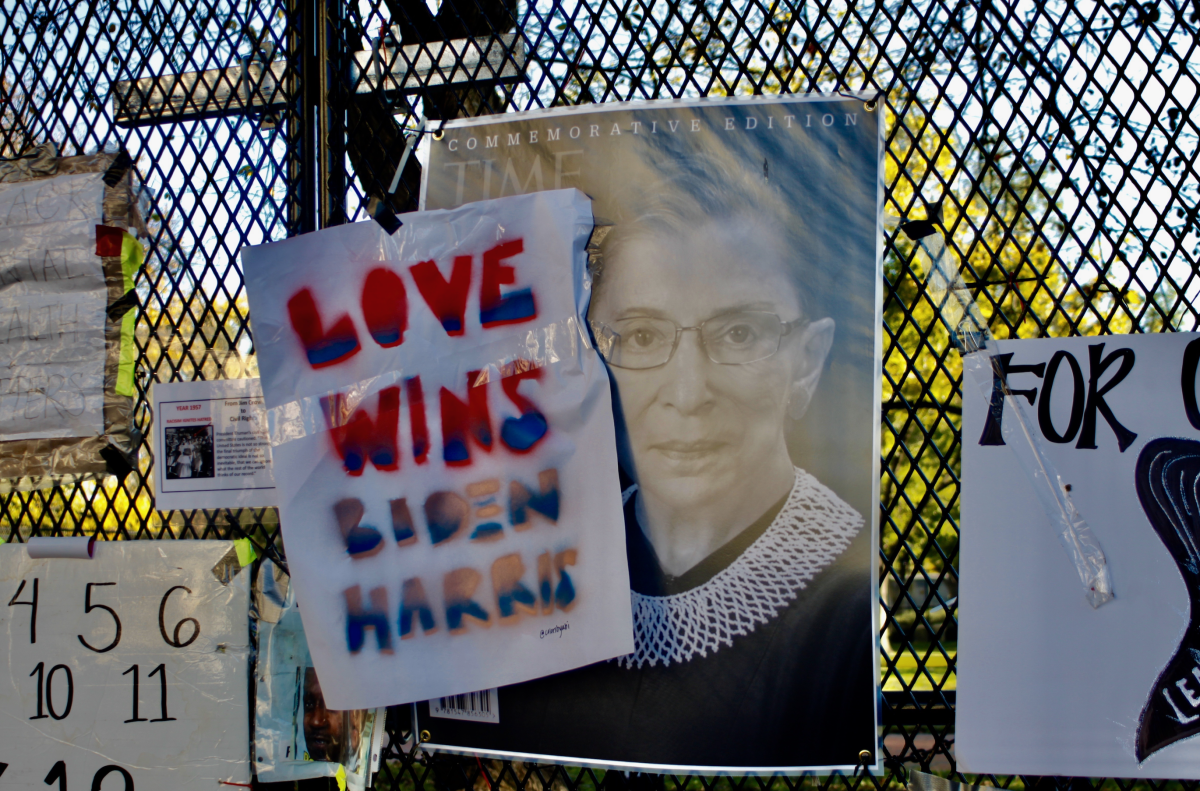In the days after this year’s presidential election, when votes were being tallied in battleground states across the country, WIS students continued their routines: going to school in-person or on Zoom, doing homework, and spending time with their families. Nonetheless, the race between former Vice President Joe Biden and President Donald Trump loomed over the community.
“Halfway through class…I’ll go check the polls or the map, or whatever. It’s definitely been on my mind, like 24/7,” freshman Martina Tognato Guaqueta said just minutes before Biden was projected as the winner on November 7.
On the Saturday morning when many major media outlets called the race for Biden, students were caught off guard. Junior Derin Ogutcu was watching “Dawson’s Creek” when she saw a notification on her phone, while junior Yasmine Oueijan was in Dupont Circle when cars started honking and Connecticut Avenue turned into a parade.
Senior Gaebriel Tafara was in the Netherlands, where he has been living during this semester. “My family was going crazy in the house but there was no large reaction [although] people did know what was going on,” Tafara said. “No parties like what was happening in D.C.”
Most WIS students supported the now President-elect Biden—WIS, and the D.C. area as a whole, is overwhelmingly Democratic. In the primaries, sophomore Sumner Hood supported Senator Bernie Sanders over both Biden and Vice President-elect Kamala Harris, but he feels hopeful about a Biden-Harris victory. “I think that under them, things could change for the better, but under Trump, things couldn’t. So I may disagree with the candidates, but I disagree with Trump more,” Hood said.
Hood added that this election has sparked more political awareness for high school students. “There’s going to be a lot more political involvement for our generation because I think this election has really brought to light a lot of the importance of being active in politics for a lot of younger people,” he said. A handful of students volunteered for campaigns this election cycle, worked at polls, or were eligible to vote themselves.
“I was invested [in the election] because I am getting to the age where decisions made in politics will start to affect me, and even though I couldn’t vote, I was very invested in Biden winning just because I didn’t want Trump,” Tafara said.
International WIS students noticed that the 2020 presidential election has been discussed at length in their home countries as well. 10th-grader Marianne Pouliot is Canadian and realized that the Quebec daily newspaper has recently been “all about the American election” and that “a lot of American politics have gone into our daily lives.”
Some students are concerned about the implications of Biden’s election on the rest of the world. Ogutcu, who is Turkish, remembers Biden’s vote for the war against Iraq and is skeptical about how he’ll handle future conflicts. “I don’t trust Biden when it comes to the Middle East. I know he doesn’t like our president,” Ogutcu said.
Other students’ reactions to a Biden presidency lie closer to home. “We live in D.C. I am very close to the White House and the Capitol,” 11th-grader Saul Meyer-Fong said. “I think that hopefully [Biden] will give DC a chance at statehood.”
“Oh [expletive] yeah, we need statehood. I’ve made a whole website about how we need D.C. statehood and the history of it. And I lived here my whole life so I am a big advocate for it,” junior Ana Diaz-Young said.
Despite the outcome of the presidential election, D.C. statehood seems unlikely given the possible Republican control of the Senate, pending two January runoff elections in Georgia. “Everybody’s favorite turtle majority leader [Mitch McConnell] is going to have a grip on the Senate, so I don’t think that we’re going to really see too much radical change over the next four years,” Meyer-Fong added.
WIS students were generally invested in this election’s outcome, but some were frustrated by some of their peers’ apparent indifference.
“I’ve heard a lot of people at school be like, ‘You know what, I don’t really care. I can’t vote, so it’s not my problem. It’s not going to affect me’ and it gets me really pissed off because you have the privilege to say that, but there are people on the streets, there are people that can’t afford things, or that will be affected by the election severely, and the fact that you can’t have that compassion is so upsetting,” Tognato Guaqueta said. “I feel like maybe, just maybe, people should care a little bit more.”
By Maia Nehme and Saul Pink


































































